In this tutorial, learn how to get a matte finish on epoxy. Also, I show you how to achieve various sheen levels on an epoxy resin surface.
Even if you don’t need to finish an epoxy table, the epoxy tips I share in this article will help you with any epoxy resin project.
Here are some jump links to the main sections of this post to help you get the information you need faster:
Video Tutorial
Why a Matte Finish?
Epoxy Matte Finish (Step by Step)
Tools Used
So, let’s get started with a list of things I used for this project
Rotex SanderSoft Sanding Pad
HEPA Dust Extractor
120 grit Sandpaper
150 grit Sandpaper
180 grit Sandpaper
220 grit Sandpaper
320 grit Sandpaper
Felt Buffing Pad
Applicator Pad for Oil
Odie’s Oil

Video Tutorial
There are several things which are difficult to fully explain with words and images, so be sure to check out the video tutorial below!
Make Epoxy Resin Less Shiny
By default, a top coat of clear epoxy resin cures to a glossy finish.
To my knowledge, there is no matte finish epoxy available for purchase.
During the epoxy resin river table popularity explosion, the natural matte finish for wood also became popular.
As a result, craftsman created techniques to make epoxy resin less shiny to match the matte look of the wood.
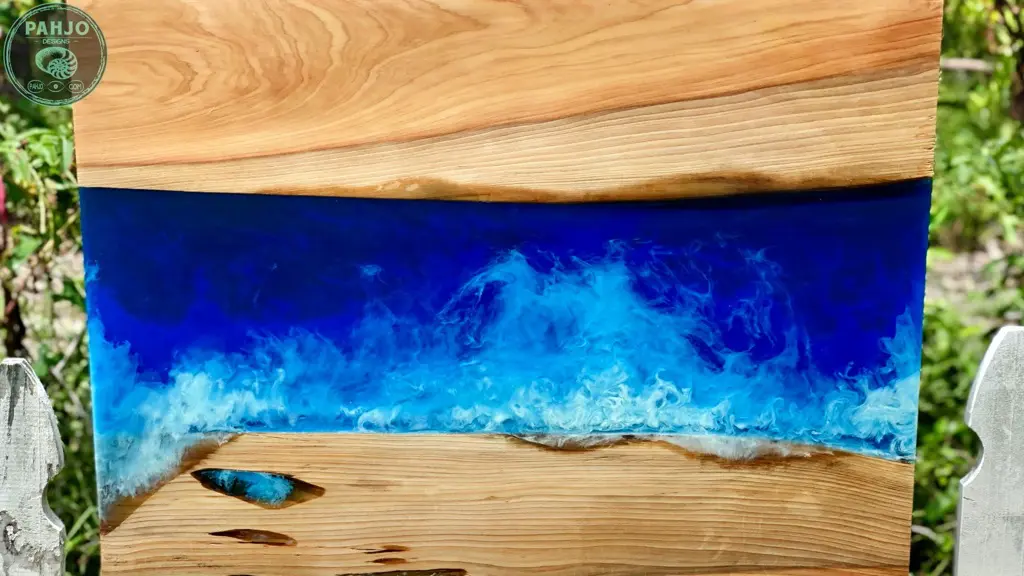
How To Give Epoxy a Matte Finish
The proper sanding technique, sandpaper grit, and epoxy wood finish make it possible to get a matte finish on epoxy resin.
The proper sanding technique, sandpaper grit, and epoxy wood finish make it possible to get a matte finish on epoxy resin.
Sanding Epoxy Resin
First, the proper epoxy sanding technique, sandpaper grit sequence, and sander are vital to achieving various epoxy sheen levels.
To sand epoxy resin, I use a Festool RO125 in rotex mode with a soft sanding pad.
In rotex mode, the sanding pad moves in a circular motion.
Furthermore, random orbit mode vibrates too much which causes swirl marks.
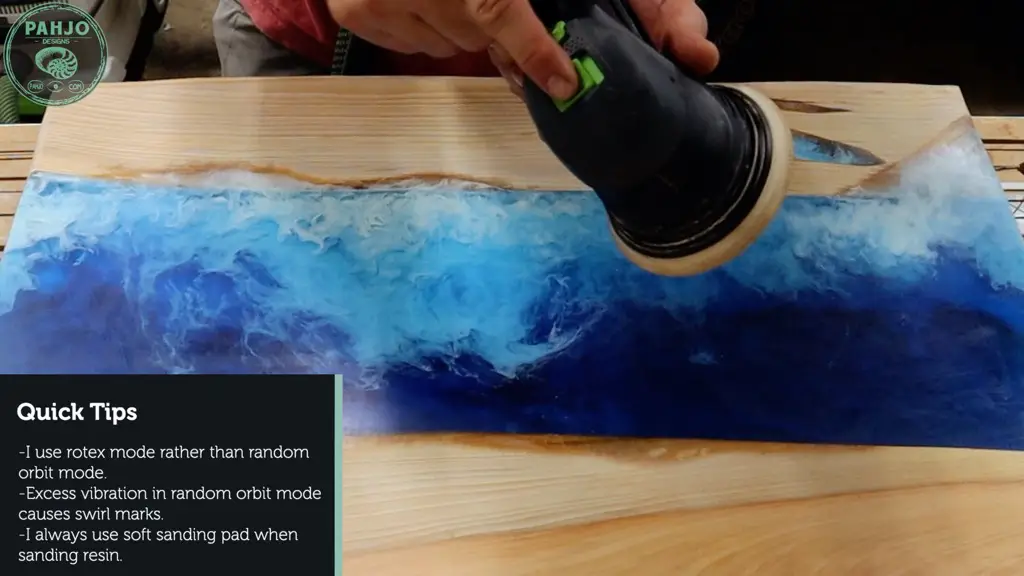
To sand epoxy resin, I use a Festool RO125 in rotex mode with a soft sanding pad.
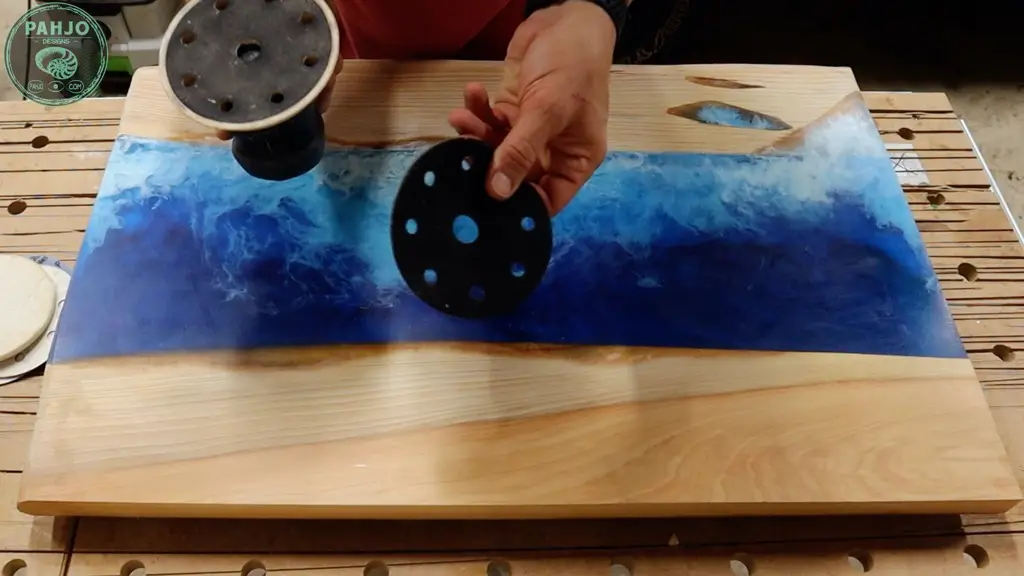
Also, I use a dust extractor attached to my sander to reduce resin dust from building up.
Obviously, resin build-up while sanding creates burn marks on the epoxy surface.
Epoxy Resin Sanding Technique
As a quick tip, dry sanding produces the same results as wet sanding with the right tools.
Please note, repeat the following technique with these sandpaper grits: 120, 150, 180, 220.
First, sand across the surface with 1 or 2 passes.
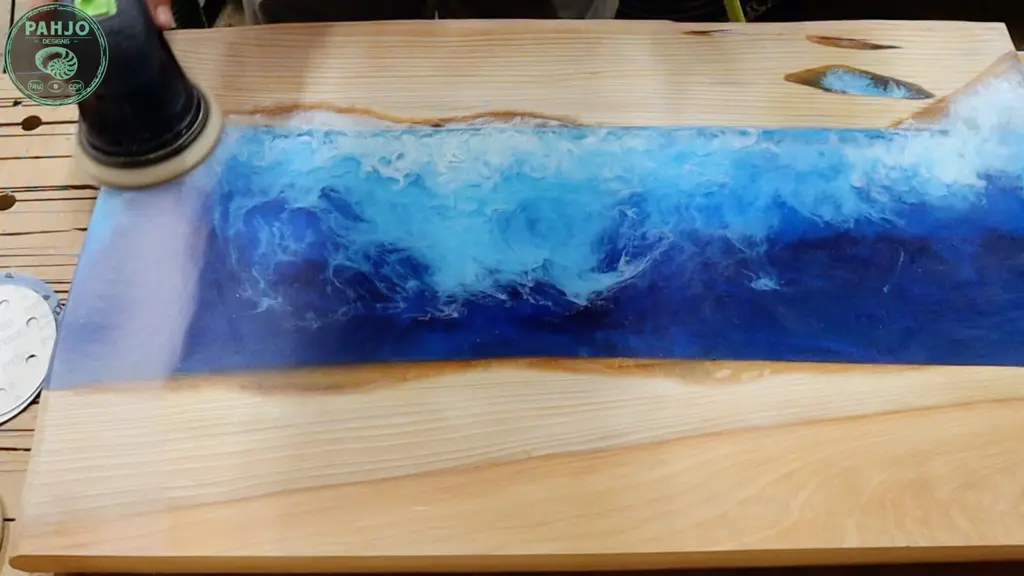
Remove the resin build up on the sandpaper with an air compressor.
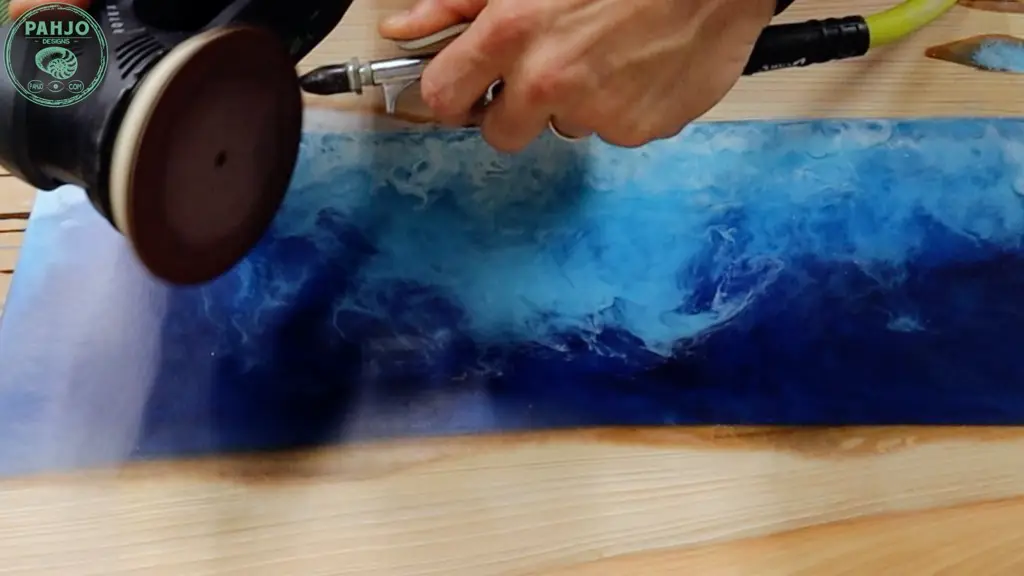
Also, overlap each pass with the previous pass by a few inches to prevent sanding lines.
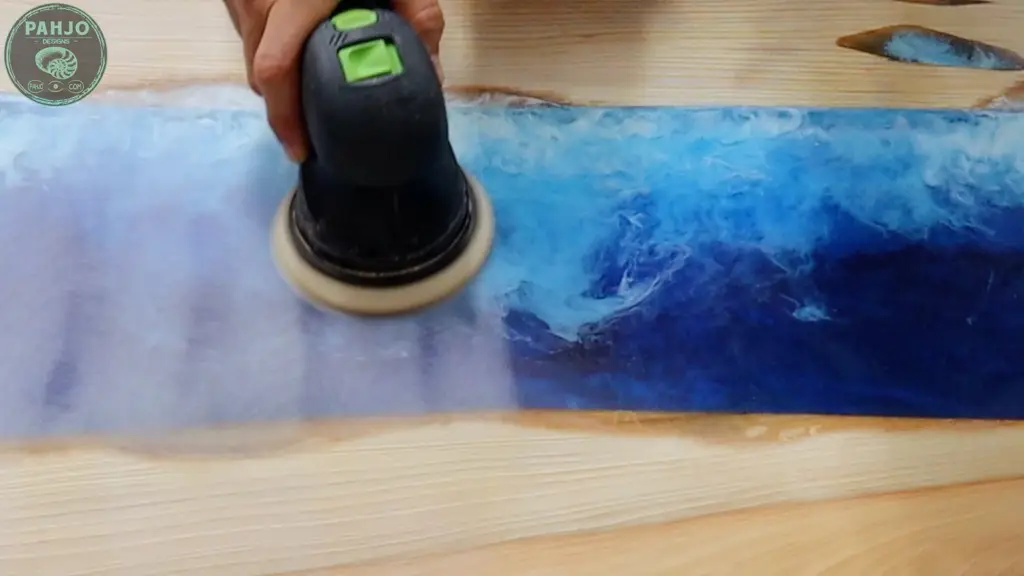
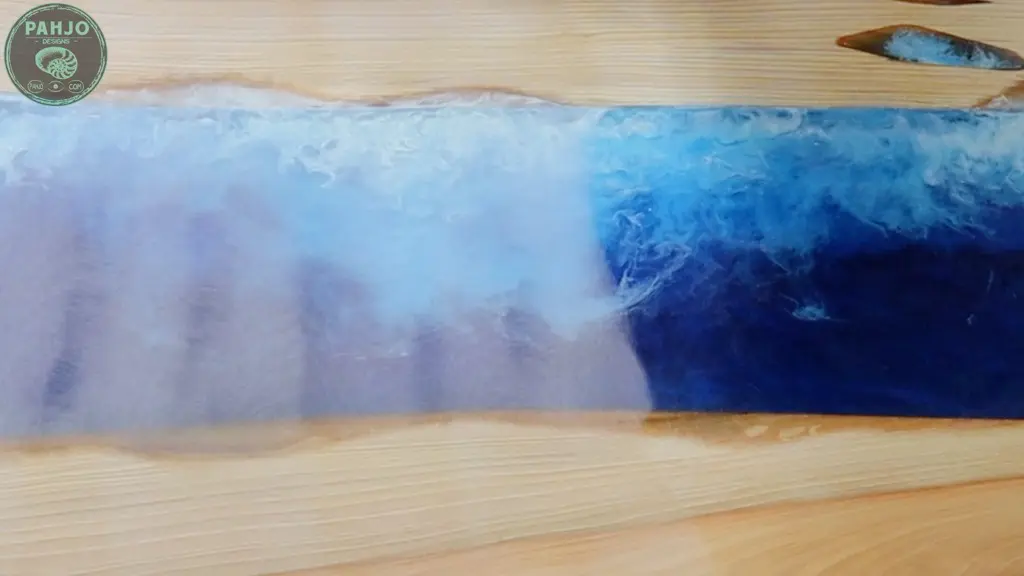
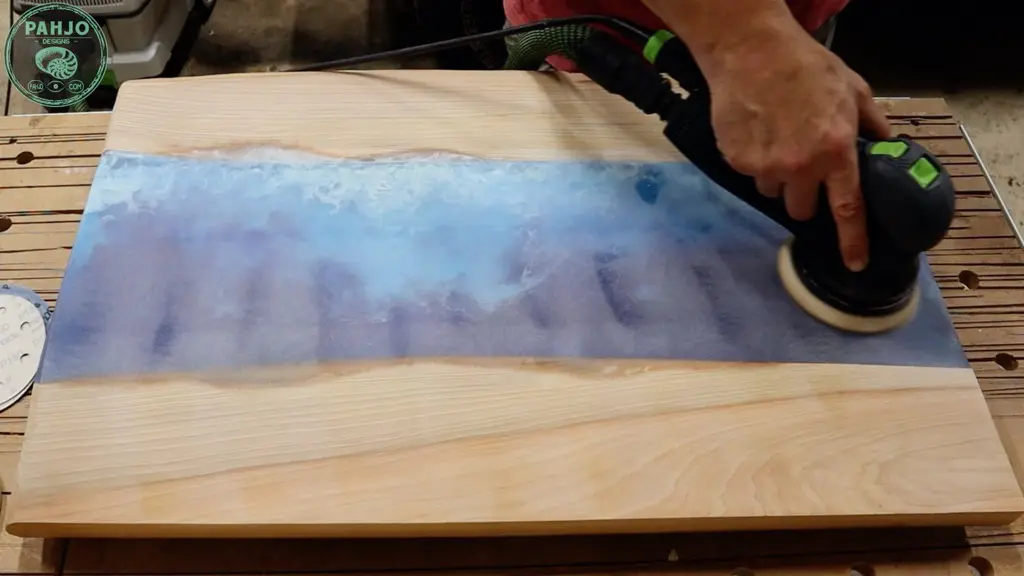
Next, sand the epoxy surface in the opposite direction (with the grain or the longer direction).
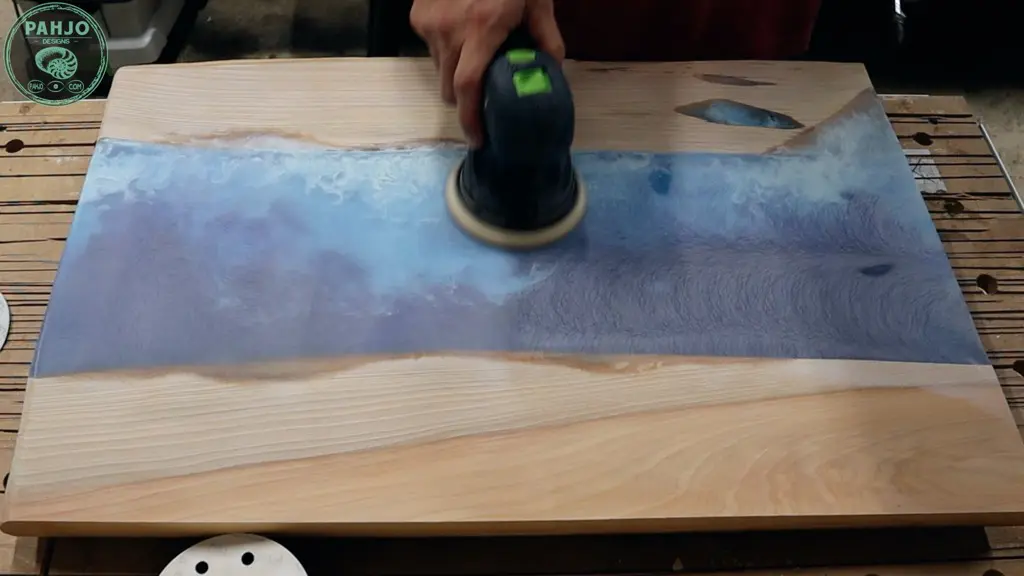
As mentioned, repeat this step for each sandpaper grit.
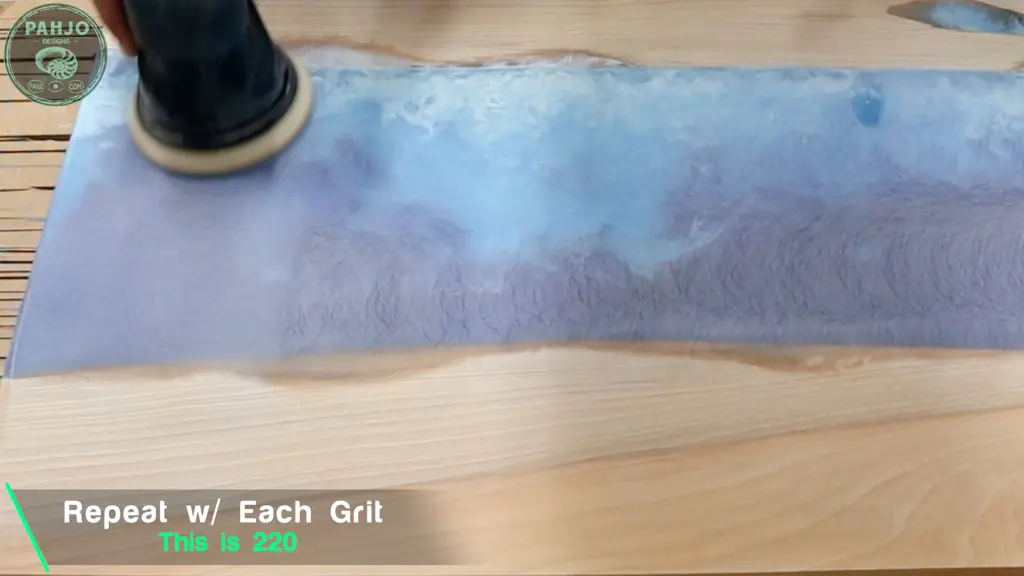
Remember, use a damp cloth to wipe the service after each sanding grit.
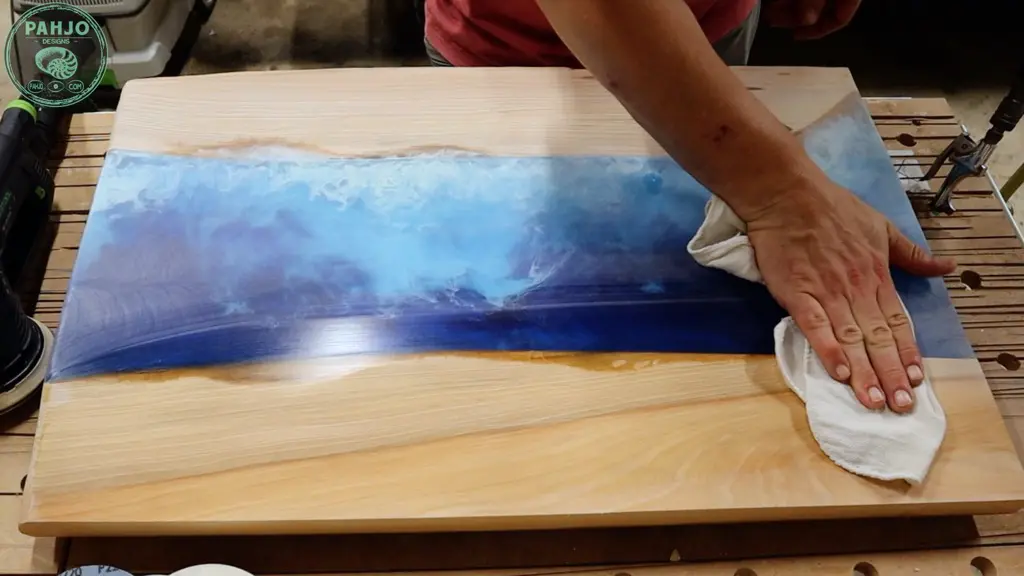
Sanding Grit Determines Sheen Level
Ultimately, the last sanding grit used determines the epoxy sheen level.
Since 220 grit produces an epoxy matte finish, stop here and proceed to the next step.
For a glossy finish, 320-3000 grit sandpaper will produce a very high sheen.
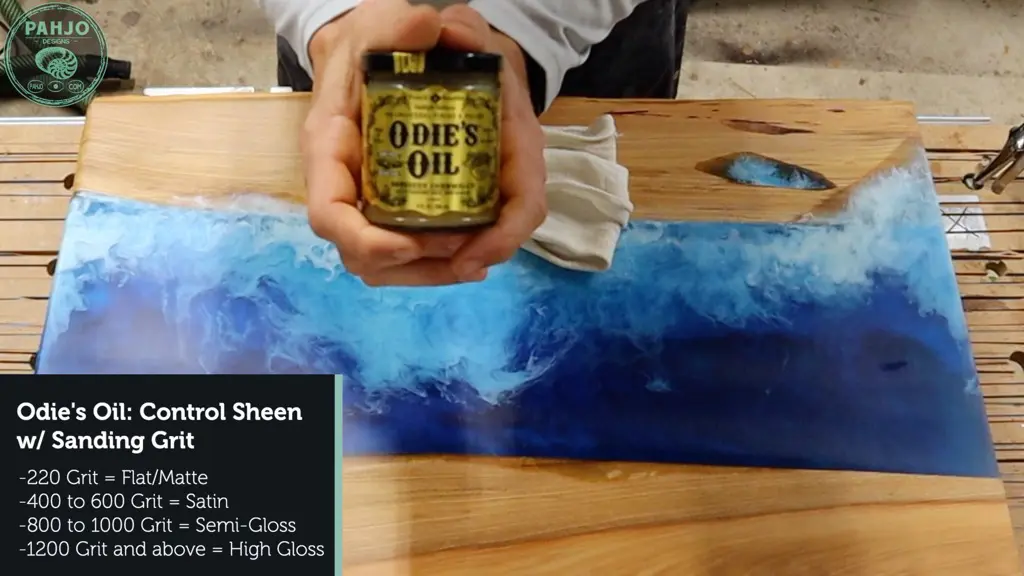
Apply Odie’s Oil Finish
Of my 4 epoxy wood finishes I use most, Odie’s Oil works really well.
After I cleaned the surface, I applied Odie’s Oil to the epoxy resin and wood surface.
First, I stirred Odie’s Oil until the consistency resembled honey.
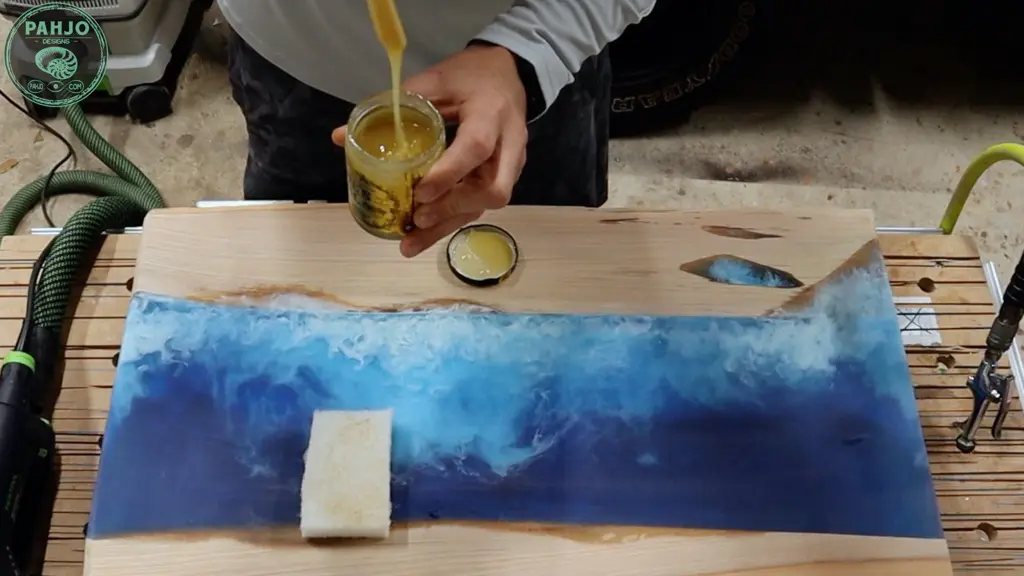
Next, I saturated a non-woven applicator pad with Odie’s Oil.
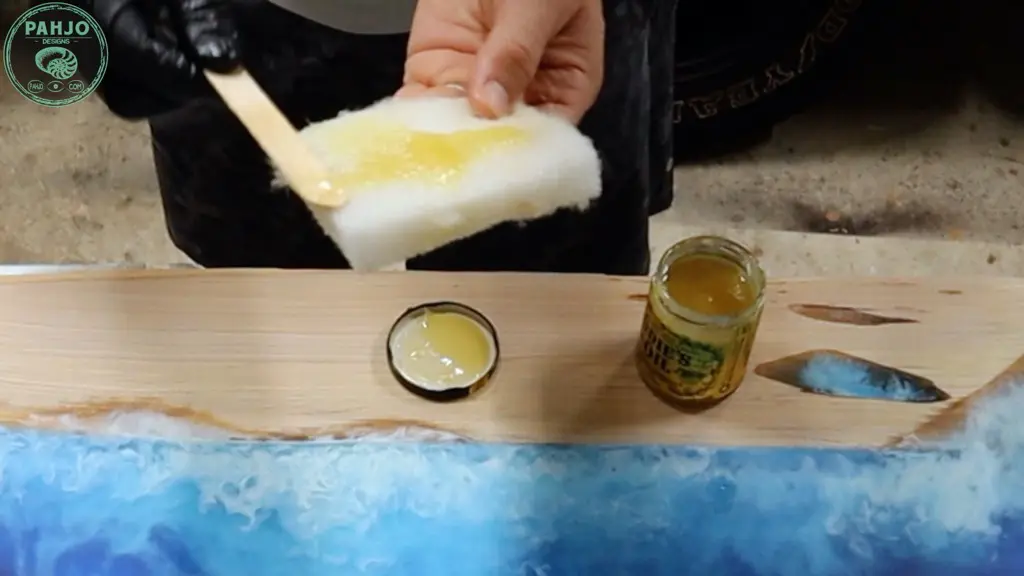
Then, I worked the oil into the surface.
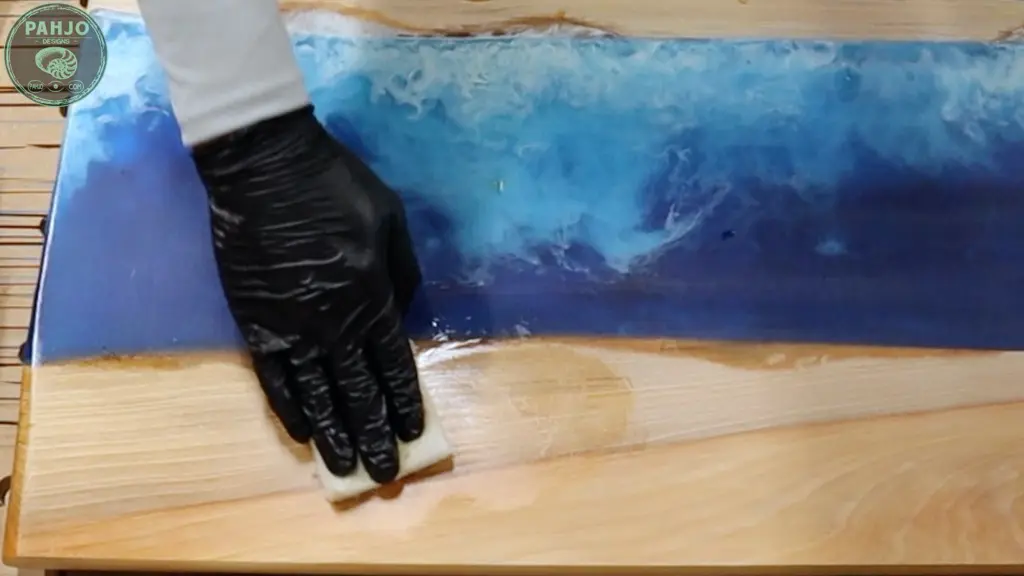
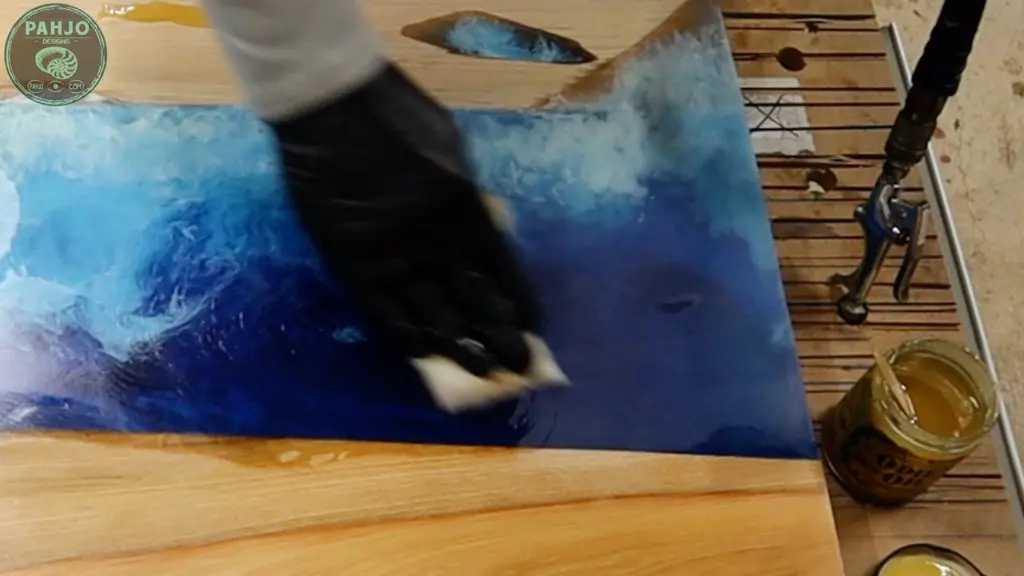
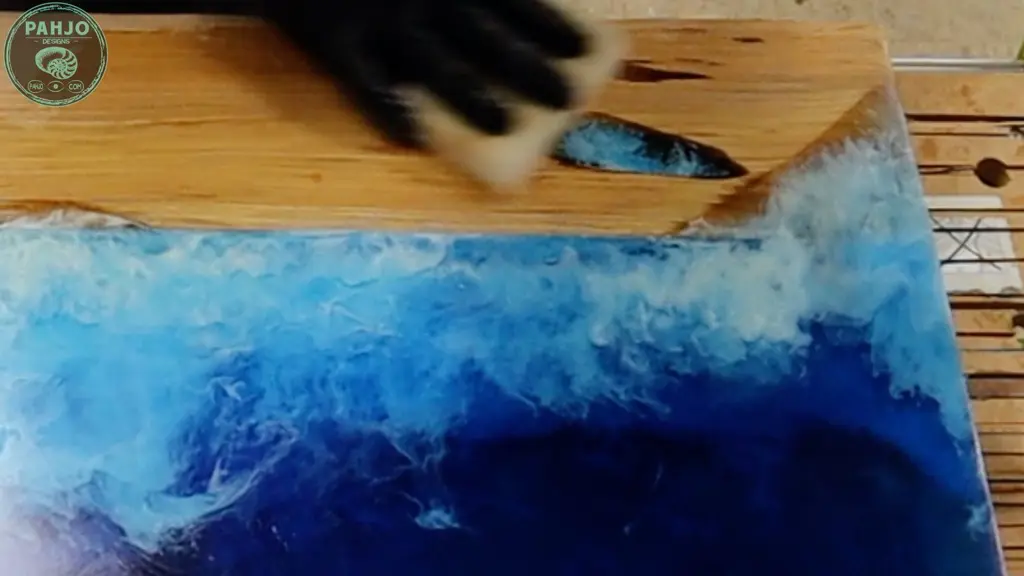
Allow the oil to set for about an hour and performed the fingerprint test.
Essentially, the oil is ready when I leave a mark across the surface after wiping my finger across it.
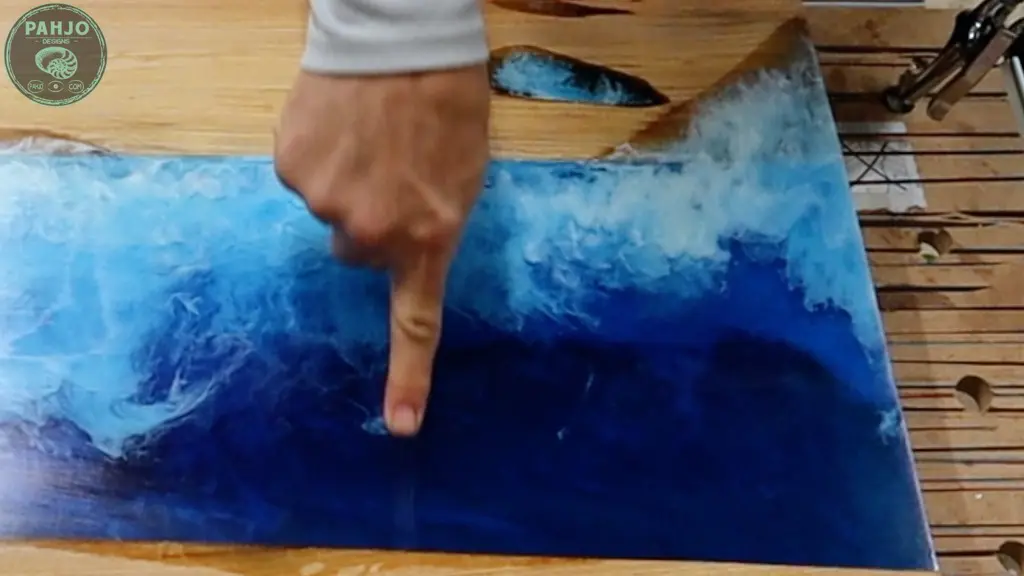
Remove and Buff Finish
To remove the excess Odie’s Oil, use a terry towel or felt pad to remove the excess oil.
The felt pad really helps bring the surface to life.
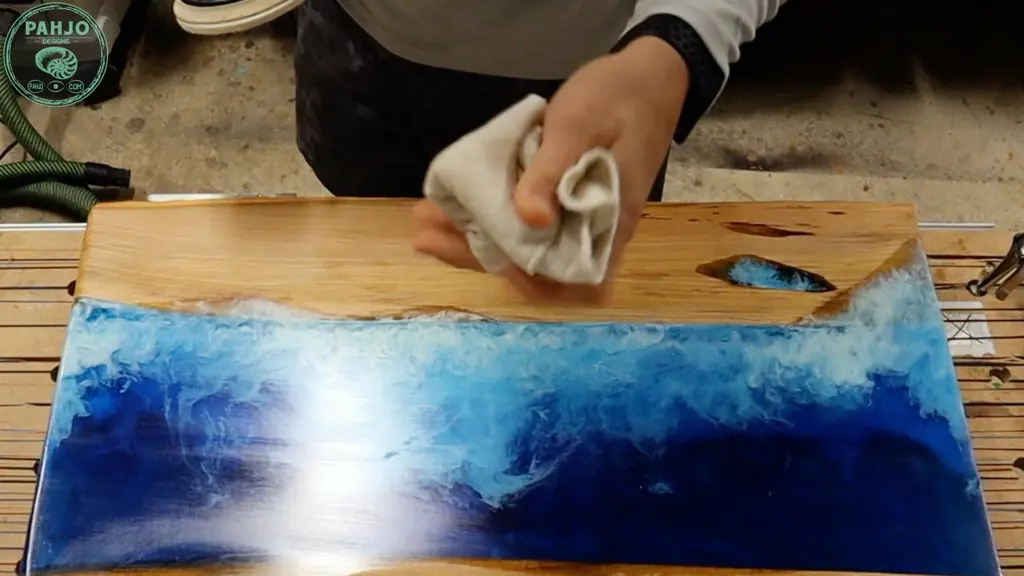
Obviously, this sander’s versatility make it worth it’s weight in gold.
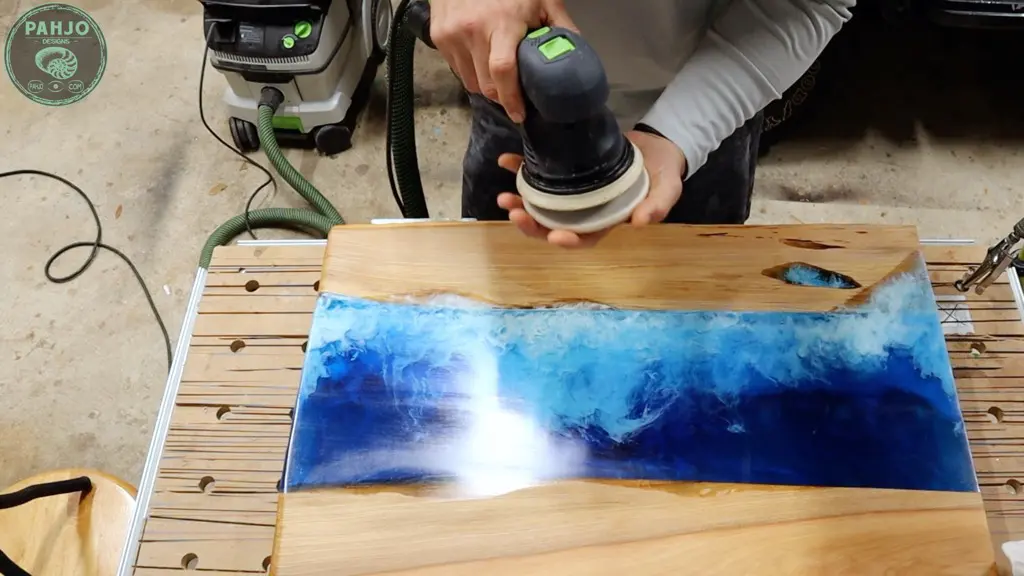
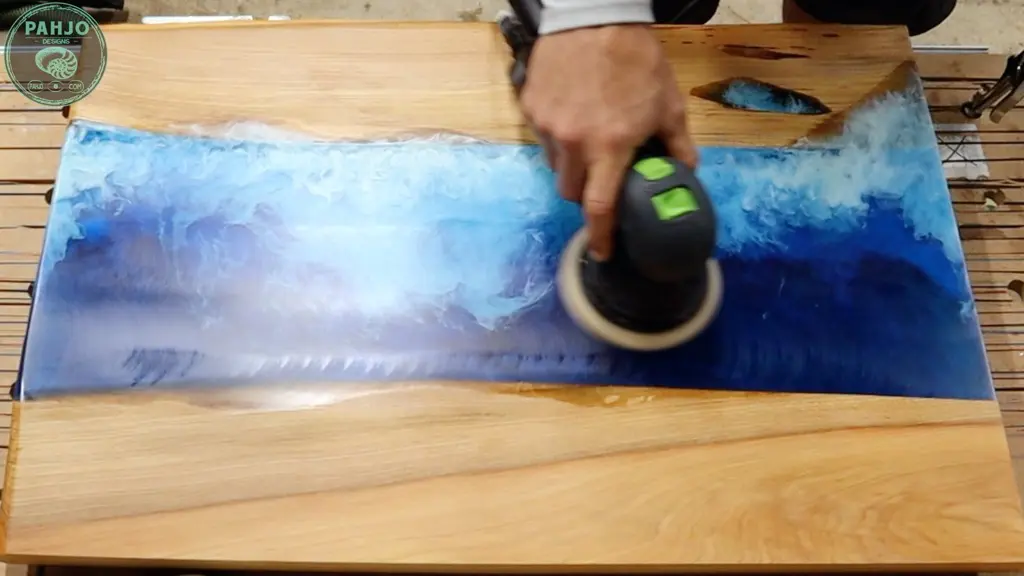
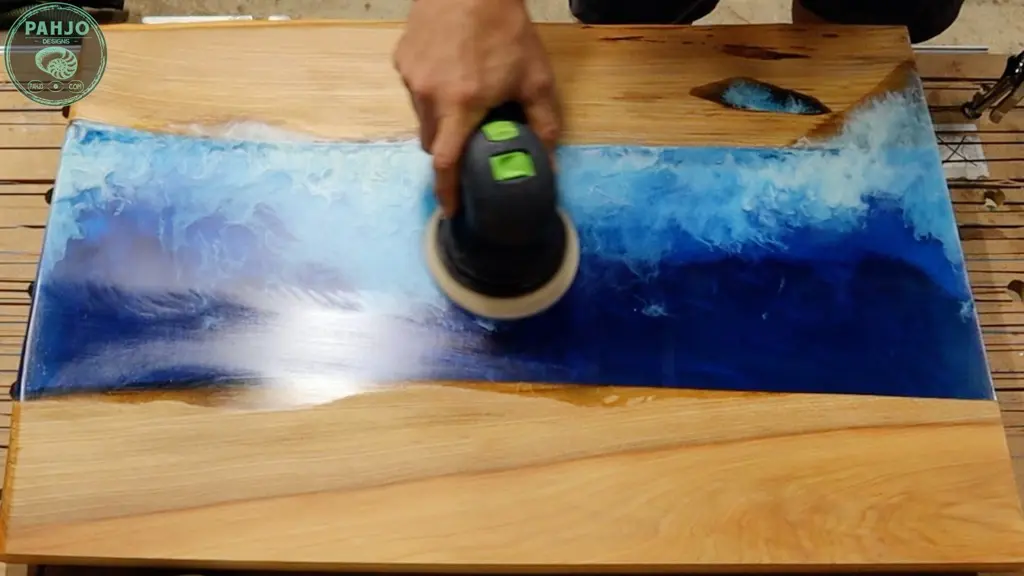
Conclusion
As you can see, this epoxy ocean art proves a matte finish on epoxy looks great.
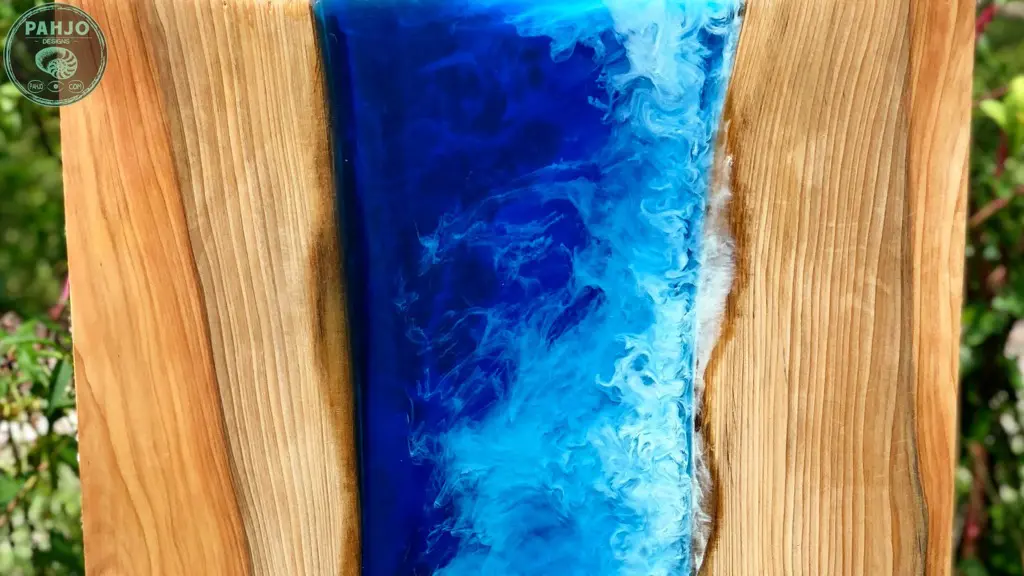
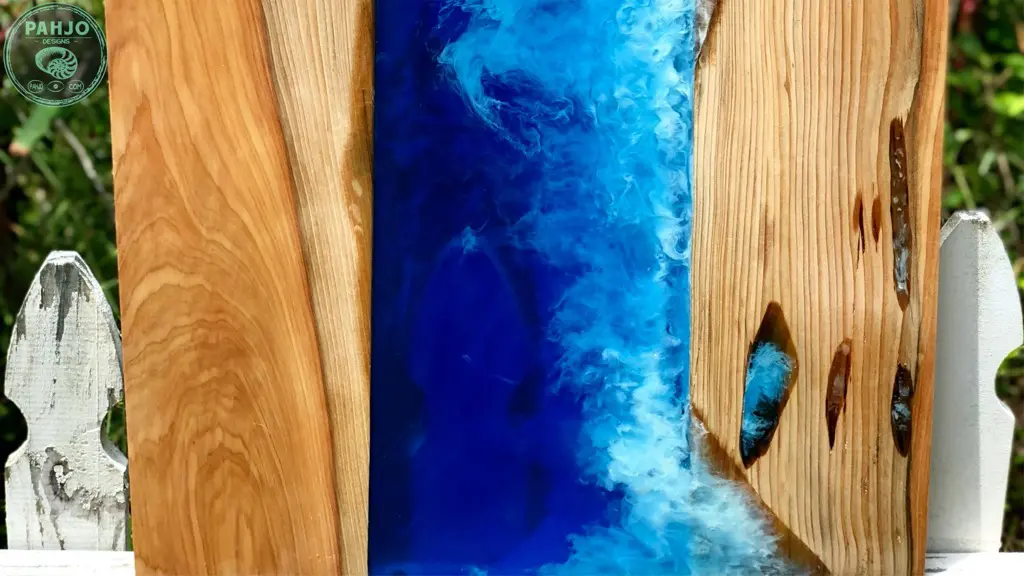
Conclusion
With the proper sanding technique, an epoxy matte finish is possible on any surface.
Additionally, this technique works to get a satin epoxy finish as well.
Please leave a comment down below if you have questions or tips on how to get a matte finish on epoxy.
